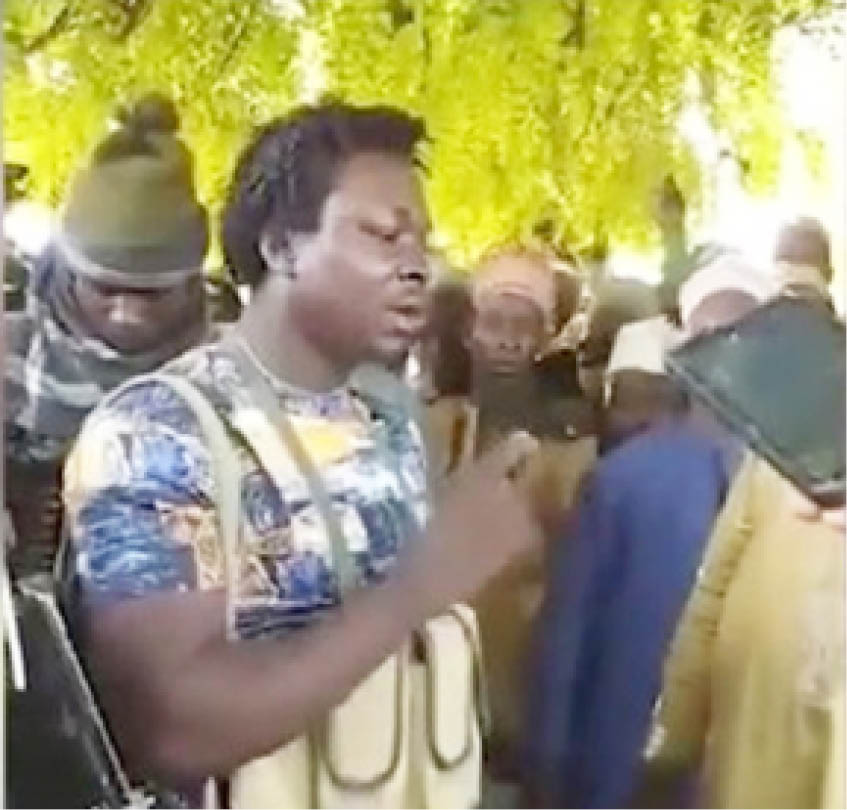In July 2021, troops of Operation Hadin Kai arrested scores of Boko Haram fighters, informants and logistics suppliers in Nigeria’s north east. The Director, Army Public Relations, Brig-Gen. Onyema Nwachukwu, said at the time that some of the suspects had confessed to working as informants for the terrorists, by providing them information on troops’ movements, locations, deployments, strength, calibre of weapons and other activities.
He said, “they also admitted to have supplied the terrorists with basic logistics for their daily survival, ranging from supply of petroleum and lubricants, drugs, mosquito nets, kola nuts, recharge cards and food stuff.”
- Kano police arrest ‘suppliers’ of fuel to bandits
- Many stranded as angry residents block major road in Zamfara over banditry
Nigeria is presently faced with several security challenges and experts say that informants who collaborate with these criminal gangs continue to hinder success in the fight against terrorism.
According to the United Nations Office on Drugs and Crime (UNODC), there are four types of informants: a member of the public, a victim of a crime, a member of an organized criminal group, and police officers themselves. In Nigeria currently, the word informant is used to depict collaborators of criminal gangs especially the terrorist group, Boko Haram in the north east and criminal gangs locally referred to as bandits in the north west.
In an interview with Daily Trust, the Commissioner of Police in Katsina State, Sanusi Buba, described informants as not only those who provide criminal gangs with information but also other essential commodities like motorbikes, fuel, food stuff, recharge cards, and many others.
Buba said dealing with such people has been difficult and continues to undermine the fight against banditry in the north west.
Alleging that most informants reside in communities where criminal atrocities are committed, the CP said information from previously arrested suspects reveal that most, if not all the information available to bandits and terrorists before they invade villages to abduct people, are predicated on information they secure from people living within the communities.
Suspicion between communities and law enforcement agents
Another major challenge in the war against insurgency in Nigeria has been hostilities and suspicions between host communities and law enforcement agencies; both of which often are casualties of criminal gangs. For instance, security agencies sometimes accuse host communities of withholding vital information that could lead to the success of their operation. They also accuse communities of shielding the insurgents. Host communities on the other hand say security agents must keep a tight noose around information shared between them to build confidence.
Lado Ibrahim, a member of vigilante in one of the remote communities of Chikun Local Government Area of Kaduna State explained that: “At the beginning of Boko Haram, some Nigerians were patriotic enough to give information to security agents on the activities of the terrorist but at the same time, the security agents were unable to manage the information and so these terrorists return to the communities and unleash their terror.”
He added that it is the same in the north west where activities of bandits have continued to leave a devastating impact on communities in the hinterlands.
On his part, Samaila Idris of Galadimawa in Giwa Local Government Area of Kaduna State said many are aware that the activities of criminals who kill and abduct people for ransom is aided by informants, adding that releasing such sensitive information could come with devastating repercussions.
“Many people are afraid, we don’t know who to trust even among law enforcement agencies,” said Idris who explained that many villagers are on the lookout for informants who live among the people.
How communities can spot informants
While advising residents on the need to identify and report informants or accomplices of bandits, Kaduna State Governor, Malam Nasir El-Rufai recently said anyone who comes to buy between 20 to 100 loaves of bread should be looked upon with suspicion.
El-Rufai, while hinting that such a person may be an informant or accomplice, urged those in the hinterlands to render services to them but also report them to security agencies. He said: “Anyone who comes to buy between 20 to 100 loaves of bread, sell it to him but also notify security agents. Or when someone comes with about 20 phones and wants to charge them, let them charge them, but also notify security agents.”
Giving further clarification on informants, the Kaduna State Police Command said people should look out for those who buy petrol in jerry cans or other containers in large quantities as well as observe sudden behavioural changes among neighbours and acquaintances in rural areas.
Kaduna State Police Public Relations Officer, ASP Mohammed Jalige said: “Some of these people suddenly have money and increase their spending. It may be that the person has married a new wife from another community or that you notice the person makes a lot of suspicious calls. You may also notice sudden changes in their movements.”
He urged people in the rural areas to be observant and report such people to law enforcement agents for investigation. ASP Jalige however cautioned that such sensitive information must not be shared with everyone.
“We advise that such information must be shared only with the Divisional Police Officer (DPO) not with other ranks. In the case where the person does not want to be seen as going into a police station, the person can reach out to our control room lines or call the PPRO because we treat such information with utmost confidentiality,” he said.
The researcher produced this literacy article per the Dubawa 2020 Fellowship in partnership with Daily Trust newspapers to facilitate the ethos of truth in journalism and enhance media literacy in the country.

 Join Daily Trust WhatsApp Community For Quick Access To News and Happenings Around You.
Join Daily Trust WhatsApp Community For Quick Access To News and Happenings Around You.


